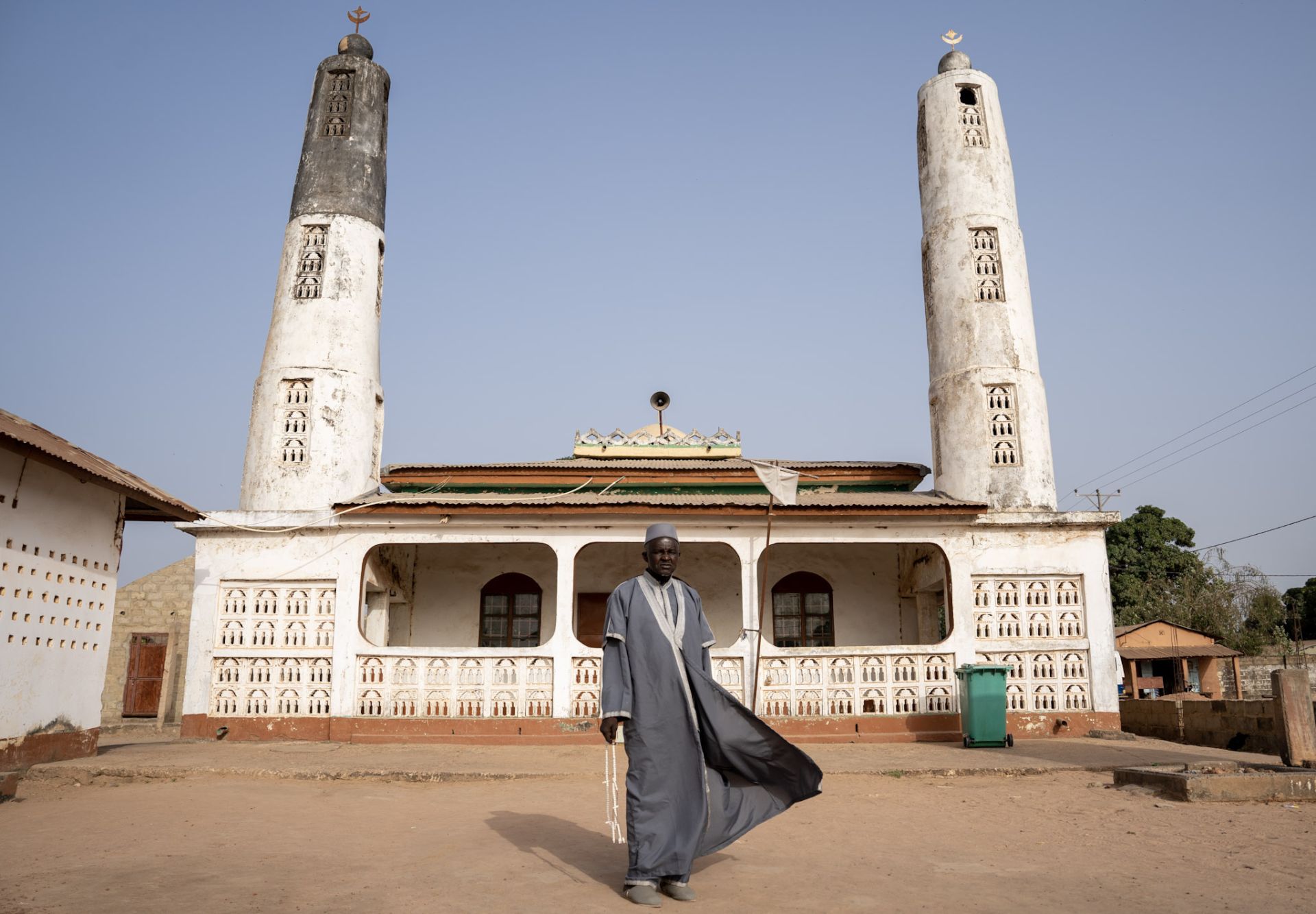Listen to this story
It was a Wednesday afternoon in December 2009 when Boubacarr Sibi heard the hypnotizing cadence of drums drifting through the window of his home in Jambur, a village in the small west African nation of Gambia. Sibi didn’t think much of the hubbub as it grew louder, until the thrumming was right at his door and several local witch doctors dressed in deep red tunics adorned with cowry charms, brandishing mirrors and beating drums, together with a squad of soldiers in green uniforms, barged into his house. They demanded he come with them to the town square, just across from the village mosque.
At first Sibi balked, but his wife feared what would happen if he resisted the soldiers — they were members of the Green Boys, a notorious vigilante squad serving Yahya Jammeh, Gambia’s brutal and erratic dictator at the time. To calm her anxieties, he followed the soldiers and witch doctors down to the dusty square, where dozens of other villagers had been herded together.
As Sibi surveyed the crowd, the common denominator among them became clear: everyone there was politically active, and none supported Jammeh. In fact, most of them had signed a petition to reverse the appointment of a new village chief — a Jammeh lackey — circulated by the son of the local imam, a man named Omar Bojang. He was on the square, too. “I had influence over the community; they listened when I spoke,” Bojang told Create a free account to continue reading Already a New Lines member? Log in here Create an account to access exclusive content.



